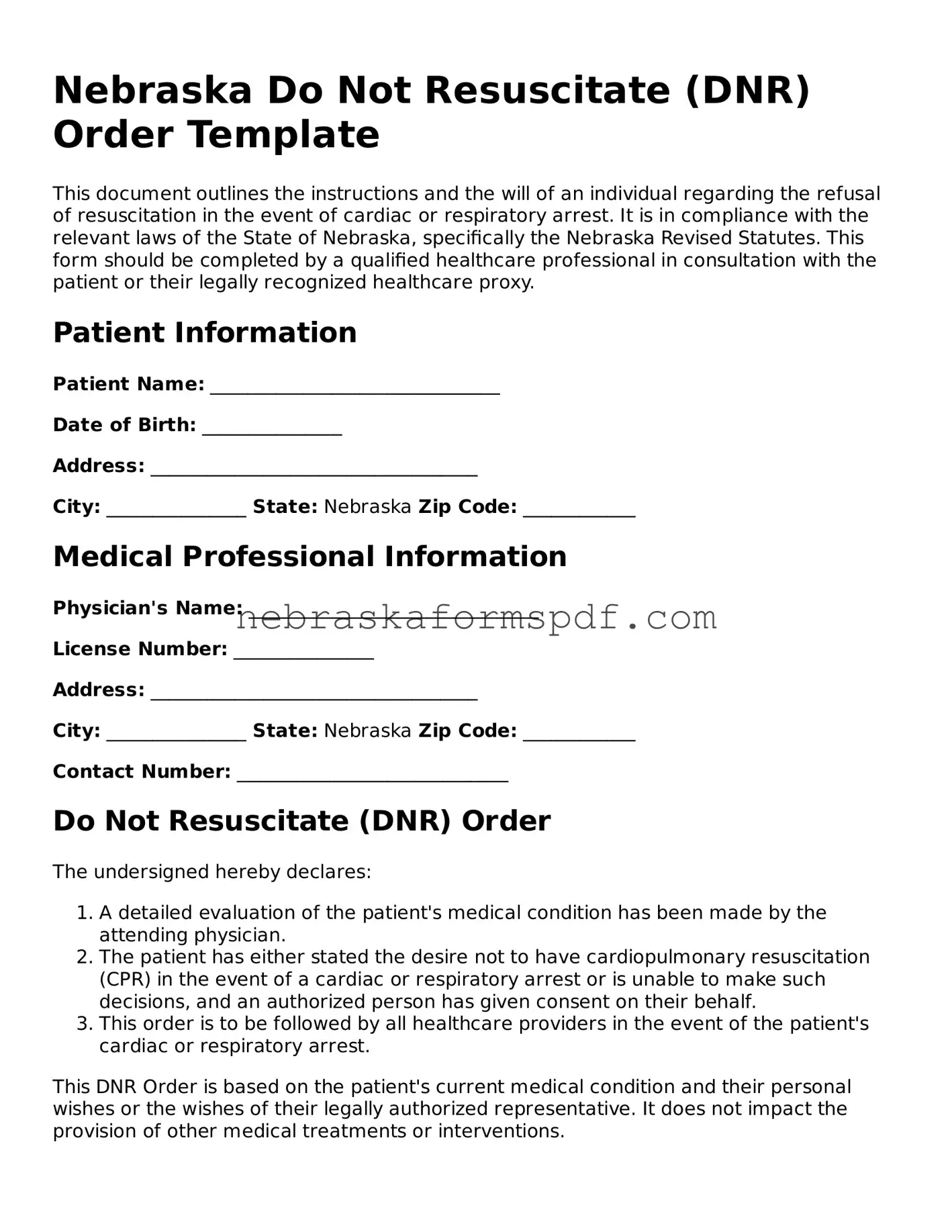Fillable Nebraska Do Not Resuscitate Order Template
The Nebraska Do Not Resuscitate (DNR) Order form is a legal document that conveys a person's wish to forego resuscitation attempts in the event of cardiac or respiratory failure. This directive ensures that medical and emergency personnel follow the individual's choice not to receive cardiopulmonary resuscitation (CPR). It is crucial for those seeking to uphold their decisions about end-of-life care to understand and properly complete this form.
Open Editor Here

Fillable Nebraska Do Not Resuscitate Order Template
Open Editor Here

Open Editor Here
or
Click for PDF Form
Don’t exit with an incomplete form
Finish Do Not Resuscitate Order online using a quick, guided process.